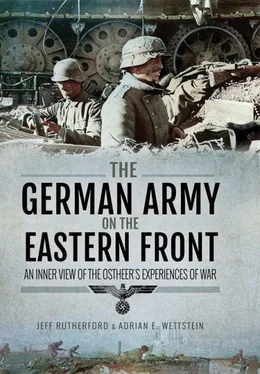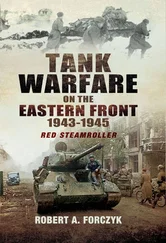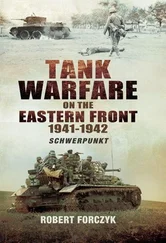These movements did not remain hidden to the Russians for long. At first, they pursued on 5.9. but only tentatively. On 6.9., however, already during the course of the morning they sent out feelers from platoon to battalion strength of Infantry Regiment 61’s combat outposts and the II./Infantry Regiment 19’s positions by Kukujewa. Moreover, an only partially cloudy sky brought excellent flying weather so that the enemy reconnaissance aircraft and bombers appeared in large numbers and our fighters and flak could once again prove their ability with numerous kills.
Already on 6.9., the ordered defensive measures were carried out on all front sectors. The main combat line was set, combat outposts were assigned, mine fields laid, patrols reconnoitred. In the evening hours, the first prisoners were already brought in.
The now following days until 12.9. were completely marked by Russian attacks against the new main combat line. It was common for two to three thrusts per day, primarily against Infantry Regiment 61. Individual sections of the front fell under the enemy’s heaviest artillery fire often for hours at a time. The Russian air force also frequently attacked with bombs and machine guns from the front to far into the hinterland.
On 7.9., the Russians planned a large attack against the positions of Infantry Regiment 62, which was already in the process of being relieved, on the right wing of the division. At 14:30, intensive assembly preparations were recognized in the Dubrowka area: 12 tanks, motorized artillery, and horse-drawn wagons. The enemy brought the attack forward for several hundred meters before he was stopped and repulsed by artillery, machine gun, and rifle fire.
The Russians also continued their attacks in the following days. It was always the same picture! Here they came in platoon strength, there in company to battalion strength. And again and again, our cannon and our infantry weapons shattered the brown-yellow masses, who tried to break through our positions in purposeless and aimless attacks. Enemy casualties were extraordinarily high. Prisoners spoke of more than 70% losses.
Meanwhile events occurred by our right neighbour that made us look with worry to the south. The enemy had broken into a section with tanks that our brave 62ers had held for a good 14 days against 11 enemy attacks. The division needed to widen the front sector to the right. On the evening of 11.9., the II./ Infantry Regiment 62 returned again to its old positions. The two other battalions were relieved later in the sector of Infantry Regiment 61, which had to suffer the most under enemy attacks.
On 13.9., the enemy discontinued his attacks. His infantry was utterly exhausted. Forays by Infantry Regiments 19 and 61 on 21.9. recently produced the confirmation through prisoner statements: the Russians were no longer capable on this front of bringing forward new attacks. Their strength was broken.
Our division, however, came out of this fighting to be sure weakened by casualties, but unbroken in combat power, again ready for great tasks.
In the fighting in the Yel’nya bend, the division took in 2,296 prisoners. The number of enemy dead is estimated at more than 3,000.
In consideration of the pronounced defensive character of this battle, seized goods are minimal. 5 tanks were destroyed, 3 blown up, numerous rifles and machine guns brought in.
The division’s losses in the time period 23.8. until 24.9.41 amounted to:
| Killed: |
5 officers |
144 NCOs and men |
| Wounded: |
19 |
463 |
| Missing: |
1 |
11 |
A special supplement will report on the efforts of the supply organization. Signal Battalion 7 constructed a telephone wire net of 151km. The most important command positions were reachable by various means. Disruptions through enemy actions were extraordinarily frequent. For example, the central telephone in Panjokowa had 33, [in] Byki 63, [in] Karatajeka 72, [and in] Barbarikin-Cholm 98 disruptions to eliminate. Engineer Battalion 7 secured the position through the installation of 2,000 mines and through the construction of numerous obstacles and obstructions.
As this document makes clear, the German blitzkrieg had already sputtered to a stop in the Yel’nya bend by late August 1941; the Germans were clearly on the defensive and, in a campaign that was entirely constructed around the exploitation of speed and mobility, this was a real problem. The Red Army’s seemingly endless supply of men and machines also emerges from this report; it is noteworthy that only Soviet tanks make an appearance, while German armour is entirely absent. Of course, Red Army numerical superiority was not enough to tilt the battle in its favour, as German tactical superiority was reflected in the casualty totals of the two armies. Finally, the report emphasized the division’s fortitude. Despite being hammered continually by the Red Army, the 7th Infantry Division maintained both the necessary combat strength and morale to continue the offensive. This resilience in combat was indeed one of the strengths of the German army during the war on the eastern front and it would be tested time and again during the course of the conflict.
German fortunes in the campaign underwent a marked reversal at the end of the year. Despite major victories during the dual encirclement battles of Briansk and Via’zma in November 1941, the power of the Panzer Groups, as well as their accompanying infantry armies, had been ground down in their struggle against the Red Army and the elements. [19]The tenuousness of German success first made itself apparent on the southern section of the front, as the following entries from the 14th Panzer Division’s war diary make clear. [20]In the course of a single day, the division both celebrated its greatest achievement of the campaign, and prepared to defend the seizure of Rostov against a suddenly superior and resurgent Soviet force.
21.11.41: Therefore the 5-day fight to seize Rostov is essentially concluded. The important industrial and trading city is in German hands; the door to the Caucasus has been pushed open. The last effective rail connection for the Russians to the vitally important Caucasian oil is broken.
The achievements of the leaders and troops in combat and in enduring extraordinary hardships are exemplary and deserve to be especially emphasized. The severe strains of the last weeks of combat have been forgotten in these days. Everyone approached the last great task with an exemplary attack spirit, in order to achieve a decisive goal for the entire conduct of war. At the beginning of the attack, the Panzer Regiment had perhaps company strength [while] the combat strength of the rifle companies was generally not higher than that of a platoon. The missing of all winter clothing whatsoever made itself even more noticeable with the severe cold.
Nevertheless, a breakthrough of the deeply positioned, excellently constructed enemy positions south of the Tusloff [River] was achieved in the first onslaught, the decisive defensive victory against heavy counterattacks led with the support of the heaviest panzers on Bolschije Saly, and finally the taking of Rostov city and bridge after bitter urban combat.
However, the division learned for the first time that enemy attacks against XIVth [Motorized] Corps have become so strong, that a considerable pulling back of the front has taken place. In the area given up, there are numerous divisional vehicles, especially panzers, which during the breaking of the rain and the subsequent frost period could not be carried along due to damage. Since the division was unaware of the strong threats to the flanks, it is not possible to send more towing services than before in the area of Agrafenowka. The division must therefore consider further vehicles, which due to minor damage in the area of XIVth [Motorized] Corps, as complete write-offs.
Читать дальше






![John Stieber - Against the Odds - Survival on the Russian Front 1944-1945 [2nd Edition]](/books/405234/john-stieber-against-the-odds-survival-on-the-russian-front-1944-1945-2nd-edition-thumb.webp)





